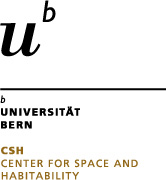BrainPol
BrainPol: Diagnosis of brain tumors using in-vivo spectro-polarimetry
The likelihood (incidence) for a Swiss inhabitant of being diagnosed with a brain tumor is as common as being diagnosed with Parkinson's Disease or Multiple Sclerosis. In children, the incidence of brain tumors follows leukemia. Specifically, in the case of Glioblastoma, 2-3 new cases per 100,000 people are reported every year worldwide. The median survival for such patients is roughly 1 year and less than 5% beyond a 5-year diagnosis (Dolecek et al. 2012). Treatment of brain tumors remains a multi-disciplinary challenge, and the greatest chance for cure is early detection, radical resection to avoid recurrence by residual disease.
The aim of the BrainPol project is the development and validation of a novel visualization and intraoperative approach that uses spectro-polarimetry to alert the surgeon to a tumor/healthy tissue boundary during resection. Glioma is the most common malignant primary brain tumor in adults. Gliomas are highly infiltrative, making visualization at the edges of the main tumor mass during resection surgery extremely challenging because the neurosurgeon cannot “see” where tumor tissue ends, and where healthy tissue begins. Neurosurgeons to date therefore lack an easily repeatable and reliable tool to classify tissue as neoplastic or healthy, especially at the border zone of brain tumors. There is a high demand to develop tissue guidance, which is the goal of BrainPol.
The BrainPol consortium assembles four complementary expert teams in instrumentation (SAINT-EX), molecular neuropathology (PATHO), neurosurgery (NEURO) and machine learning (AIMI). The consortium has gathered preliminary evidence that circular spectro-polarimetric data from a panel of healthy and tumor tissue from intraoperative samples, coupled with new technology can yield a transformative approach to the clinic.
BrainPol is a spin-off effort of the MERMOZ project jointly with ARTORG, the Insel Spital’s Neurosurgery department and the Institute of Pathology. MERMOZ is mostly funded by the PlanetS bonus “Frontiers in habitability”. MERMOZ’s main goal is to investigate the potential of spectro-polarimetry to detect and characterise life remotely, using its distinctive homochiral property.
